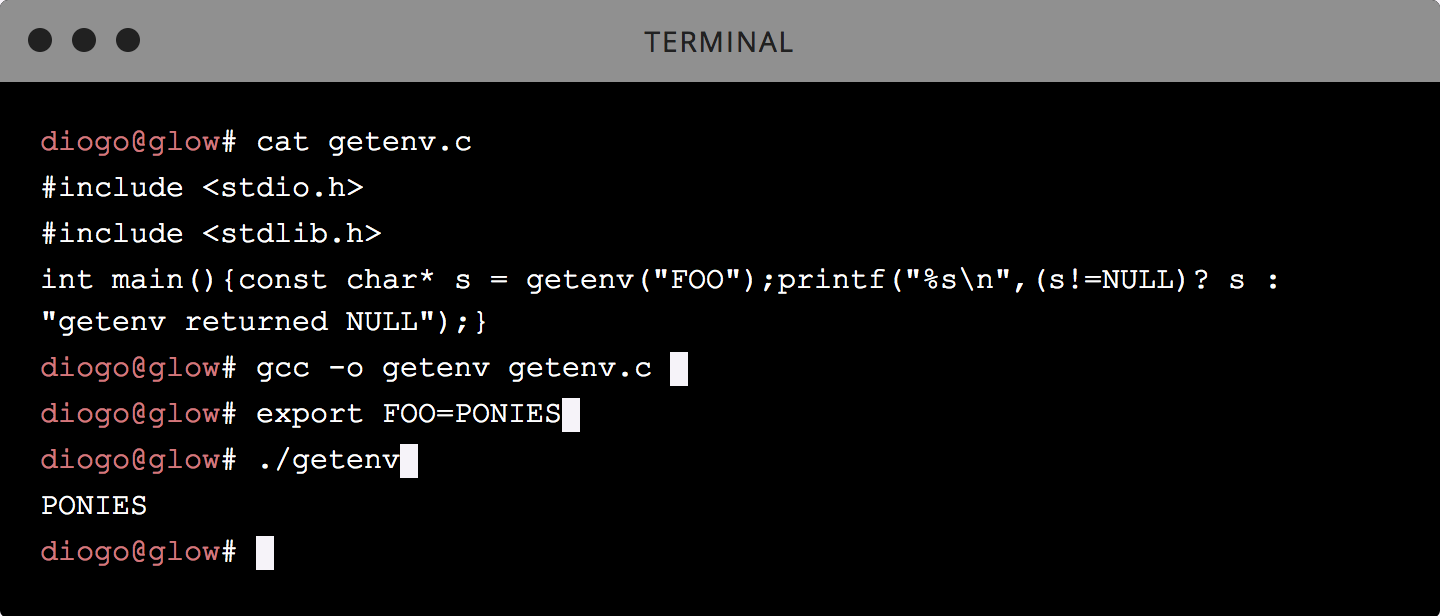The twelve-factor app manifesto recommends that you pass application configs as ENV variables. However, if your application requires a password, SSH private key, TLS Certificate, or any other kind of sensitive data, you shouldn't pass it alongside your configs.

When you store your secret keys in an environment variable, you are prone to accidentally exposing them—exactly what we want to avoid. Here are a few reasons why ENV variables are bad for secrets:
- Given that the environment is implicitly available to the process, it's hard, if not impossible, to track access and how the contents get exposed (
ps -eww <PID>). - It's common to have applications grab the whole environment and print it out for debugging or error reporting. So many secrets get leaked to PagerDuty that they have a well-greased internal process to scrub them from their infrastructure.
- Environment variables are passed down to child processes, which allows for unintended access. This breaks the principle of least privilege. Imagine that as part of your application, you call to a third-party tool to perform some action—all of a sudden that third-party tool has access to your environment, and god knows what it will do with it.
- When applications crash, it's common for them to store the environment variables in log-files for later debugging. This means plain-text secrets on disk.
- Putting secrets in ENV variables quickly turns into tribal knowledge. New engineers who are not aware of the sensitive nature of specific environment variables will not handle them appropriately/with care (filtering them to sub-processes, etc).
Overall, secrets in ENV variables break the principle of least surprise, are a bad practice, and will lead to the eventual leak of secrets.
If not env variables then what?
At a previous job I helped solve this problem with a really elegant solution: Keywhiz. At Docker we went a step further and built a similar solution directly into Docker itself. If you're using swarm, you now have a trivial way to manage your secrets securely:
openssl rand -base64 32 | docker secret create secure-secret -
And that's it. You can now use your secret:
docker service create --secret="secure-secret" redis:alpine
And make your application read the secret contents from the in-memory tmps that gets created under /run/secrets/secure-secret:
# cat /run/secrets/secure-secret
eHwX8kV8sFt/y30WASgz8kimnKhUkCrt07XMrmewYr8=
By integrating secrets into Docker, we were able to deliver a solution for the secrets management that follows these principles:
- Secrets are always encrypted, both in transit and at rest.
- Secrets are difficult to unintentionally leak when consumed by the final application.
- Secrets access adheres to the principle of least-privilege.
Having an easy-to-use, secure-by-default secret distribution mechanism is exactly what developers and ops need to solve the secrets management problem once and for all.